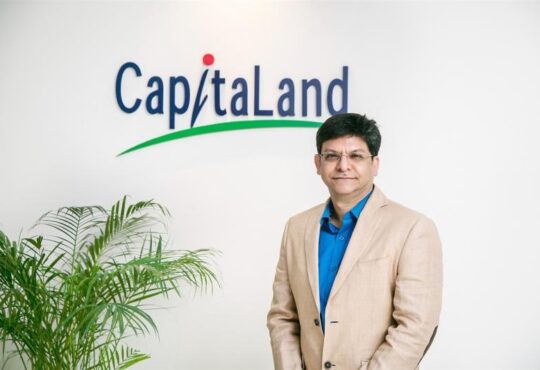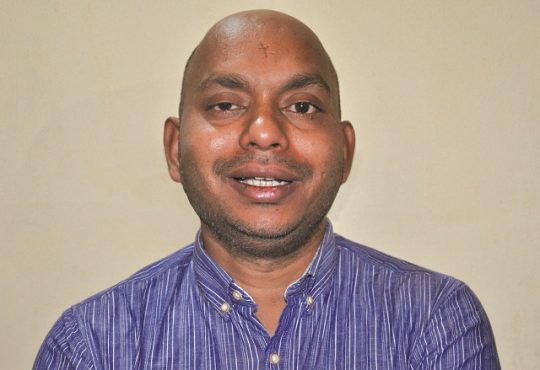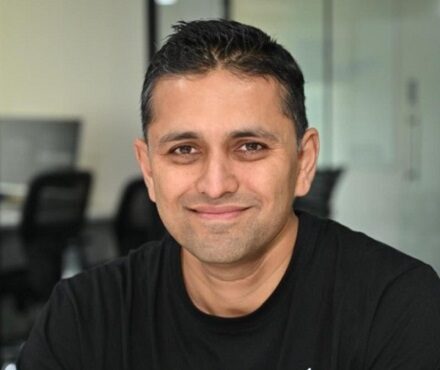Empowering Future Innovators: YuviPep’s Journey Through STEM Education and Practical Application

CXOToday has engaged in an exclusive interview with Ajith Kumar NS, Director, YuviPep.
- Can you elaborate on the specific STEM concepts covered in YuviPep’s Innovation Base Courses (IBC), and how are these courses structured to cater to varying skill levels?
Ans: The Innovation Base Course has been created keeping four things in mind, relevance to real-world problems, progressive learning curve, a hands-on approach to the concepts and curiosity and engagement. All the topics and projects in the innovation base course are designed to cover the fields of science, technology, engineering and mathematics, which in turn train the candidates to tackle the hurdles in the real world. As the course is built over a progressive curve, the topics range from basic electronic circuits and fundamentals, physics fundamentals explained over day-to-day phenomena, microcontroller programming, embedded project building, etc. These courses are structured to cater to varying skill levels by starting with fundamental concepts and gradually progressing to more advanced topics. Each topic is introduced with theoretical explanations and hands-on projects and experiments side by side, allowing students to apply what they have learned in real-world scenarios. Additionally, the courses include troubleshooting techniques and provide opportunities for students to have what it takes to tackle the real world problems.
- How does YuviPep incorporate emerging technologies like AI/ML, robotics, and automation into its educational programs, and what opportunities do these technologies present for young innovators?
Ans: YuviPep incorporates emerging technologies like AI/ML (Artificial Intelligence/Machine Learning), robotics, and automation into its educational programs through a multi-faceted approach that includes syllabus updates, newsletters, and prototype development. YuviPep ensures that its educational programs stay relevant by regularly updating the syllabus to include the latest advancements in technology. They also provide a newsletter for students to stay updated with the current world of technology. This newsletter covers topics related to AI/ML, robotics, automation, and other emerging technologies, providing students with insights into the latest developments and trends in the field. By staying informed, students are better prepared to explore these technologies further and understand their potential applications. Moreover, R&D engineers continuously work on developing prototypes that leverage emerging technologies to address current world problems.
These techniques which YuviPep follows ensures that the students get the opportunity to explore new frontiers while pushing the boundaries of innovation, making them problem solvers and creating a positive impact on the world
- In what ways does YuviPep leverage design thinking principles to foster innovation and problem-solving among students?
Ans: Design thinking for any solution starts with understanding the need and challenges of the user and their convenience. YuviPep ensures that students get the problem statements that are valid in the modern-day environment and help them connect with it. This assists them in developing user-friendly solutions.
The entire process of design thinking is not a one-shot process, it requires multiple iterations in order to obtain a refined output. For that particular purpose, YuviPep encourages the students not to settle for the first outcome of their design thinking process. The ideal results can be obtained through mentor-student and student-student brainstorming sessions. YuviPep always ensures to provide such an environment for the children that cultivates their innovative and creative thinking.
The key component of design thinking is always the prototyping and testing phase. YuviPep teaches students how to rapidly prototype their ideas using low-fidelity materials and tools. By creating physical prototypes or digital mockups, students can quickly visualize their concepts and gather feedback from users. This hands-on approach to prototyping and testing allows students to validate their ideas early in the design process and make informed decisions based on user feedback.
- Could you provide insights into the methodologies employed by YuviPep to ensure that its educational content remains up-to-date with the rapidly evolving tech landscape?
Ans: YuviPep employs a multifaceted approach to ensure its educational content remains up-to-date with the rapidly evolving tech landscape. This includes continuous research and monitoring of industry trends, collaboration with industry partners and experts, gathering feedback from students and educators, agile curriculum development methodologies, periodic syllabus updates and revisions, and investing in the professional development of instructors. By staying abreast of the latest advancements and best practices, YuviPep ensures that its educational offerings equip students with the skills and knowledge needed to succeed in the dynamic world of technology.
- How does YuviPep integrate practical hands-on learning experiences into its curriculum, particularly in fields such as electronics and mechatronics?
Ans: YuviPep integrates practical hands-on learning experiences into its curriculum through a combination of prototyping sessions, project-based learning, and real-world applications. Students are provided with access to customised components so that they can experiment with electronic tools, microcontrollers, sensors, actuators, and other hardware. YuviPep’s sessions provide a constructive environment for students to apply theoretical knowledge acquired in the classroom to practical scenarios, fostering a deeper understanding of concepts. Additionally, project-based learning plays a significant role, where students work on practical projects that involve designing, building, and testing electronic circuits, 3D designing, structural analysis, robotic systems, and mechatronic devices. These projects are often interdisciplinary, requiring students to integrate knowledge from various fields such as STEM to solve real-world problems. Moreover, YuviPep encourages participation in competitions, hackathons, and industry collaborations, providing opportunities for students to showcase their skills and gain practical experience in electronics and mechatronics. Through these approaches, YuviPep ensures that students not only develop theoretical understanding but also practical skills and problem-solving abilities essential for success in their future endeavours
- Can you share some success stories or notable projects undertaken by students who have completed YuviPep’s programs, showcasing the practical application of their acquired skills?
Ans: YuviPep aims to not only enhance the theoretical understanding but also the practical application of students, equipping them with essential skills necessary to navigate future problems. Here are a few notable projects undertaken by students who have completed YuviPep’s programs:
Saanvi, an 8th grader – Saanvi’s prototype uses a machine learning algorithm that analyses brain MRI images and detects the presence of tumours.
Reet, a 7th grader -The system is programmed with a sounding buzzer that prompts users to take medicine at the time of need.
Jaswin Baweja, 9th grade, Farm Easy For Smart Irrigation System: This smart farming device saves water, and streamlines the irrigation system ensuring maximum efficiency and minimum water wastage.
Laasya VK, Grade 8, Fall Detector For Elderly assistance: The device utilises a specialised motion detection algorithm that can identify falling motions with a high degree of reliability.
Nisarga G P, 5th grade, Innovative Quiz App: Nisarga’s quiz app offers a gamified experience with intriguing questions tailored to student’s grade levels.
Aditi Bordoloi, 9th grade, Water Quality Checker: The water quality device tracks the pH levels of water using sensors. If the pH levels deviate from the acceptable range, it triggers an alert.
Eesha Jogdand, 8th grade, Green Bunker: This power-generating system is unique in a way that it is energy efficient and can be used in military bunkers.
Shivam Mandaliya, 9th grade, Intelligent Car Safety System: This intelligent car safety system equipped with an IR transmitter, IR receiver and microcontroller prevents accidents from drowsiness.
Akarsh R, 9th grade, Sling Shot Game: This slingshot game is a captivating version of the ‘angry bird game’ that integrates physics into a fun learning experience.








